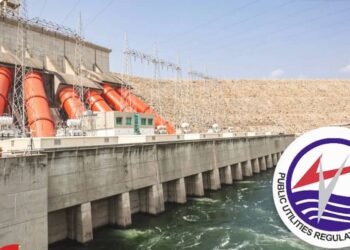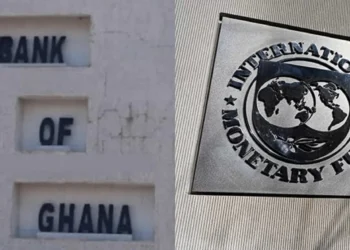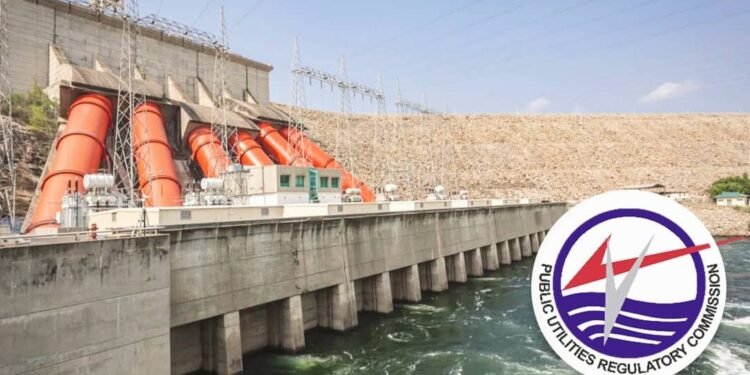Ghana is poised to host the official launch of the 50th anniversary celebrations of the Economic Community of West African States (ECOWAS).
This landmark event, to be held in Accra, marks a significant milestone in the evolution of ECOWAS since its formation in 1975, and it signals both a time of reflection and a moment to chart an ambitious course for the next 50 years of regional unity, prosperity, and peace.
Addressing the media in a detailed press briefing, Ghana’s Foreign Affairs Minister and Chairman of the Local Planning Committee, Hon. Samuel Okudzeto Ablakwa, provided insights into the significance of the upcoming jubilee and Ghana’s critical role in delivering a celebration that matches the solemnity of the occasion.
According to Hon. Ablakwa, the special launch event will be hosted by Ghana’s President, His Excellency John Dramani Mahama, who has extended personal invitations to all ECOWAS heads of state and government, ministers of foreign affairs and finance, and leaders of partner organisations.
Notably, Hon. Ablakwa disclosed that President Mahama has also invited the leaders of the three Alliance of Sahelian States (AES)—Burkina Faso, Mali, and Niger—to join the commemorations, despite their withdrawal from ECOWAS, in what is seen as a gesture of reconciliation and forward-looking diplomacy.
“As we reflect on the state of our regional economic community, it is no exaggeration to say that the legacy of ECOWAS over the past five decades has been one of modest transformation, driving regional integration through harmonization of policy, pulling of resources, and cooperation for collective and strategic combat against a myriad of problems confronting the region.”
Hon. Samuel Okudzeto Ablakwa, Ghana’s Foreign Affairs Minister and Chairman of the Local Planning Committee
Hon. Ablakwa indicated the regional bloc has championed key initiatives such as the ECOWAS Trade Liberalisation Scheme, the brown card insurance policy, and the protocol on the free movement of goods, persons, and services.

He strongly believes that ECOWAS has laid the groundwork for a more integrated and borderless West Africa, stressing that the regional bloc’s achievements extend beyond economic integration.
According to Hon. Ablakwa, the organisation has played a central role in shaping the region’s democratic credentials and conflict resolution mechanisms, deploying peacekeeping missions, facilitating political transitions, and promoting constitutional rule across member states.
He also noted that ECOWAS has invested in human capital development, infrastructure, and cultural cooperation, most notably through the West Africa Power Pool, the Abidjan-Lagos Corridor project, and scholarship schemes that have empowered thousands of young West Africans to become entrepreneurs, engineers, and public servants.
“Yet recently, the impact of ECOWAS in forging together an integrated regional economic block of 15 member states has been somewhat diminished in the face of political and security challenges, which have led to the withdrawal of three member states, Mali, Niger, Burkina Faso”.
Hon. Samuel Okudzeto Ablakwa, Ghana’s Foreign Affairs Minister and Chairman of the Local Planning Committee
According to Hon. Ablakwa, these developments have reignited debate over the future of regional integration and the capacity of ECOWAS to adapt to evolving political and security dynamics.
Hon. Ablakwa acknowledged these challenges but emphasised the need for resilience and strategic recalibration, stressing the need for ECOWAS to reinforce diplomacy, enhance security, and remain resilient in its vision of a united and prosperous West Africa.

He further praised President Mahama’s ongoing shuttle diplomacy aimed at mending relations with the AES countries, describing his efforts as “pragmatic” and “widely applauded by peers and observers alike.”
The theme of inclusivity and renewed purpose was central to Hon. Ablakwa’s address. He reiterated that the ECOWAS at 50 celebration is more than ceremonial.
Rather, it is a “strategic opportunity” to reignite faith in the ECOWAS vision, especially among the region’s youth.
The event, he said, is intended to not only commemorate the past but also stimulate dialogue on the future of the region—touching on trade, governance, climate resilience, security, education, and technological innovation.
In terms of preparations, Hon. Ablakwa disclosed that a national planning committee, chaired by his office, has been working tirelessly in collaboration with ECOWAS representatives, particularly Ambassador Lawal, to design a program of activities befitting the milestone.
He commended the committee’s professionalism and sense of purpose, adding that the entire nation must rally behind this effort.
Addressing public concerns about Ghana’s expenditure on the jubilee, particularly during a period of economic austerity, Hon. Ablakwa was unequivocal. “The majority of the financial burden will be borne by the ECOWAS Commission,” he clarified, adding that Ghana’s contribution will be minimal.
This, according to Hon. Ablakwa, is a classic case of burden sharing, nevertheless, Ghana is providing substantial logistical and security support, affirming its unflinching commitment to ECOWAS ideals and regional cooperation.
“We therefore seek the full endorsement and collective support of all stakeholders, government agencies, private sector partners, civil society, and the people of Ghana to ensure that this celebration is world-class, defeating our nation’s reputation as a leader in diplomacy and regional integration”
Hon. Samuel Okudzeto Ablakwa, Ghana’s Foreign Affairs Minister and Chairman of the Local Planning Committee
Ghana’s Commitment to Regional Cooperation
The symbolism of Ghana as the host nation is a testament to the country’s commitment to regional cooperation.
He also disclosed that at the 66th Ordinary Session of the ECOWAS Authority of Heads of State and Government, the country was entrusted with hosting the official launch of the golden jubilee.
According to Hon. Ablakwa, the choice is a testament to Ghana’s longstanding reputation as a leader in regional diplomacy and integration.
In his reflective remarks, Hon. Ablakwa recalled the foundational moment of ECOWAS on May 28, 1975, when visionary leaders from across West Africa signed the Treaty of Lagos.
What began as an ambitious economic project, according to him, has since grown into an institutional force in promoting democracy, fostering peace, and facilitating social and cultural convergence across the region.

Hon. Ablakwa further emphasized that since the formation of ECOWAS, it has evolved beyond its economic origins to become an institution that stands as a pillar of democracy, a guardian of regional security, a beacon of social and cultural integration, and a promoter of human capital development that is working to ensure food security sustainably.
“On this occasion, let us remember that regional integration is not just about policies, it is about people. It is about the entrepreneur in Accra and Abidjan, the student in Lagos and Dakar, the journalist in Lome and Freetown, and the peacekeeper in Banju and Bissau.
“It is about the farmers, traders, artists, and innovators who believe in a future where West Africa stands united in strength, stability, and shared prosperity.”
Hon. Samuel Okudzeto Ablakwa, Ghana’s Foreign Affairs Minister and Chairman of the Local Planning Committee
As the host of this prestigious event, Ghana seeks to use the platform to project its diplomatic strength and showcase its leadership in building bridges and renewing hope in the ECOWAS dream.
The launch will also serve as a springboard for a year-long series of commemorative activities across member states, all aimed at re-engaging stakeholders and the public with the ECOWAS mission.
In sum, Ghana’s hosting of the ECOWAS at 50 launch is a historic honour and a strategic responsibility.
The celebration offers an opportunity to reflect on five decades of regional achievements while galvanising commitment to overcome current challenges and drive forward a new era of cooperation, innovation, and prosperity.
READ ALSO: Gov’t Assures Job Security as it Assumes Control of Damang Mine




















